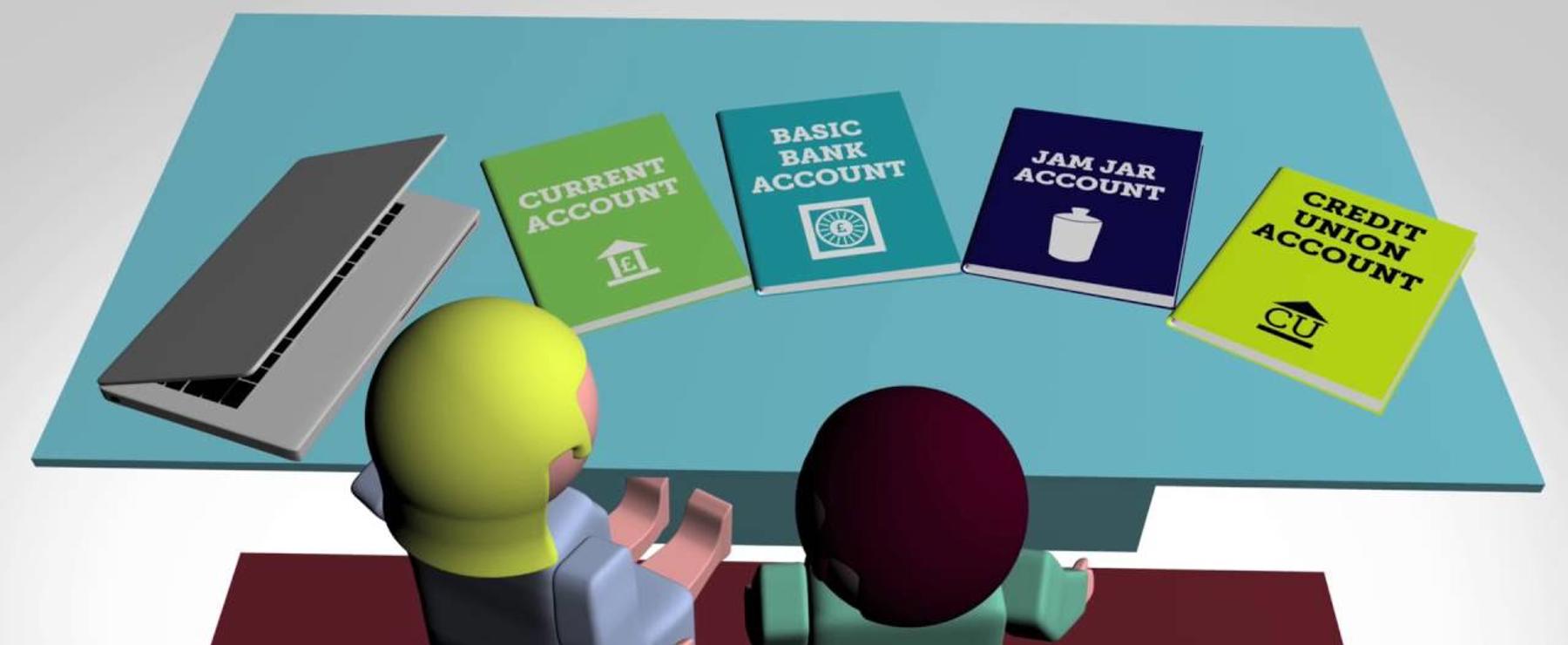Why do I need a bank account?
It is important to have a bank account.
It’s a safe place for your money to be paid in and stored – whether that is your wages, any benefits you get, or your pension.
Worried about fees? There are many free accounts and many that won’t let you go overdrawn.
Types of accounts
Basic accounts
- Usually free
- Debit card to pay for shopping or services
- Debit card can be used to withdraw cash from ATMs or cashpoints
- No chequebook
- No overdraft
Current accounts
Same as basic accounts except:
- Chequebook included
- Authorised overdraft
Overdrafts cost money. If you go overdrawn without the bank agreeing it, the cost to you can be very high. Even if you have an agreed overdraft with the bank, you will be charged interest on the amount of money you are overdrawn. The bank you have an account with will be able to give you the full details.
Savings accounts
- Useful for saving money for things like holidays and Christmas
- Often help grow your money by giving you interest on your savings

Money Advice Service’s video
What documents do I need?
All documents need to be current and in date.
Documents to prove who you are:
- Passport
- Full photo driving licence
- Latest benefit award letter showing what benefit you're getting and how much you receive
- Disabled blue badge with photo
- HMRC tax notification issued within 12 months
Documents to prove your address include:
- Utility bill no more than three months old
- Council Tax bill
- Water bill
- Tenancy Agreement
- Bank, credit card or Credit Union statement no more than three months old
Using your bank account to pay rent and bills
Setting up direct debits and standing orders to pay bills is a good idea.
With direct debits and standing orders, you can:
Set the dates so that the payments go out as soon as your money comes in.
Manage your money and know what’s left to spend.
Be aware the bank can charge you if you do not have enough money in your account to cover the payments
Direct Debits
- Come out of your account the same day every month
- Useful to pay bills in full when you can’t be sure exactly how much the amount will be
Standing orders
- Come out of your account the same day every month
- You set a fixed amount to come out
- This can make it easier to budget
- Be aware that this could mean you are left with more money to pay off the bill at the end of the year
Keeping safe
- Check your bank statements regularly
- Make sure you have been charged the right amount for goods and services
- Check you recognise the payments and that you have made them all yourself
- Check that benefits, wages or refunds are the right amount and have been paid to you
What we can do for you:
We can support you with:
- Advice on opening a bank account
- Changing from a Post Office account to a bank account
- Checking your documents
- Applying online
- Setting up direct debits and standing orders
- Getting your benefit payments set up on a new account
Need Help? Please contact our Customer Hub and we’ll put you in touch to our Financial Inclusion Officer.
Contact our Customer Hub



